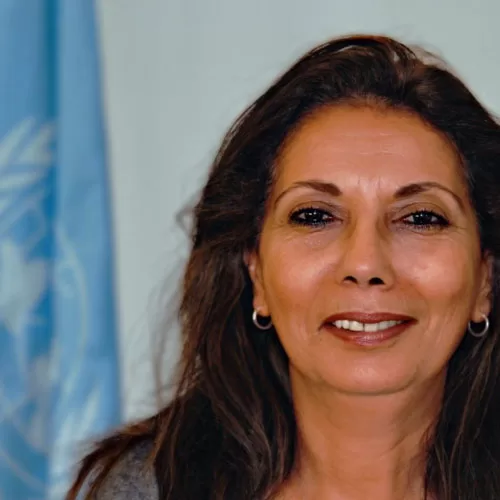Dr.Najat Maalla M’jid est médecin pédiatre, avec plus de 30 ans d’expérience consacrés à la promotion et la protection des droits de l’enfant. De 2008 à 2014, elle a été Rapporteure spéciale des Nations Unies sur la Vente d’Enfants, la Prostitution des Enfants et la Pornographie mettant en scène des enfants. Dr M’jid a également travaillé en tant qu’experte-consultante pour des projets, stratégies et politiques nationales et internationales liés à la promotion et à la protection des droits de l’enfant. Elle possède une vaste expérience dans l’élaboration de politiques nationales de protection de l’enfant et a collaboré avec plusieurs gouvernements, organisations non gouvernementales et intergouvernementales.
Résumé de l’intervention
Titre de l’intervention
Violence en milieu scolaire : mieux prévenir et mieux réagir
Every child has the right to go to school free from fear and violence. But for too many girls and boys worldwide, school is where they experience violence. School violence is widespread and occurs in all countries. School violence refers to all forms of violence that take place in and around schools, on the way to or from school, as well as online. School violence can be physical, psychological, and sexual, and includes gender-based violence, bullying, cyberbullying, school shootings as well as attacks on schools. According to UNESCO (April 2023) it is estimated that 246 million girls and boys experience violence in and around schools. School violence has severe and long-lasting effects on the mental health, well-being, and education of children. The human and economic cost of school violence is huge. According to the World Bank (2021), violence in schools leads to $11 trillion in lost lifetime earnings. Well documented proven policies and programmes show that ending school violence is a smart economic investment (Safe to learn, World Bank, UNESCO, UNICEF). Preventing and responding to school violence is critical to make sure that all children feel protected, safe, do not drop out, learn better and ultimately become active and productive citizens. Ending school violence is possible if cross sectoral policies , interdisciplinary programmes and interventions since the early childhood are in place, and if children are part of the solution. The clock is ticking! Less than 7 years remain to achieve the 2030 Agenda (SDGs 4,5 and 16). Investing in a safe, inclusive, and empowering education, leaving no child behind, can’t wait!

